Alain Supiot | |
|---|---|
| Born | 5 June 1949 |
| Education | Licentiate (law, 1970, and sociology, 1972), Doctor of Law (1979) |
| Alma mater | University of Bordeaux 1 |
| Employers | |
Alain Supiot FBA (born 5 June 1949 in Nantes) [1] [2] is a French legal scholar.
Alain Supiot | |
|---|---|
| Born | 5 June 1949 |
| Education | Licentiate (law, 1970, and sociology, 1972), Doctor of Law (1979) |
| Alma mater | University of Bordeaux 1 |
| Employers | |
Alain Supiot FBA (born 5 June 1949 in Nantes) [1] [2] is a French legal scholar.
Supiot achieved his licentiate in law in 1970 and in sociology in 1972, and finished his Ph.D. in law from the University of Bordeaux 1 France, in 1979. [1] Professor tenure (1980), member of the « Institut Universitaire de France » (2001, chair of « Dogmatic Grounds of Law and Social Ties »), Ph.D. honoris causa (Université catholique de Louvain, Belgium), Alain Supiot has successively been Professor at the University of Poitiers and Nantes, France (UMR-CNRS 6028). He created in Nantes the « Maison des sciences de l’Homme Ange Guépin » (Institute for Humanities and Social Sciences), and more recently the Nantes Institute for Advanced Study Foundation, which is promoting cooperations between the North and the South in the field of Social Sciences. He was elected to Collège de France on chair «État social et mondialisation : analyse juridique des solidarités»
His career has been landmarked by several years spent in foreign Universities and Research Institutes (Institute of Industrial Relations, Berkeley, USA, 1981 ; Florence University Institute, Italy, 1989–1990 ; Wissenschaftskolleg zu Berlin, Germany, 1997–1998). Member of the « Droit social » law review, he also authored numerous books focussing on labor law and social security law (among others : Critique du droit du travail, PUF, 1994) and participated to various collective works (among others : Le travail en perspective, LGDJ, 1998 ; Servir l’intérêt général, PUF, 2000 ; Beyond Employment. Changes in Work and the Future of Labour Law in Europe Oxford University Press, 2001, 245 p.). He has presided at the National Council for the Development of Human and Social Sciences (whose works have been published at PUF, Quadrige collection, 2001, under the title : « Pour une politique des sciences de l’Homme et de la société »). He seats at the scientific committee of the International Labour Review and at the administrative board of the Foundation « Maison des Sciences de l’Homme de Paris ». His actual research interests focus of the analysis of the dogmatic foundations of social ties.
His last published book in English is "The Spirit of Philadelphia. Social Justice vs. the Total Market"
He was elected as corresponding fellow to the British Academy in 2015. [3] He is a member of the Global Commission on the Future of Work formed by International Labour Organization [4]

François Joseph Charles Simiand was a French sociologist and economist best known as a participant in the Année Sociologique. As a member of the French Historical School of economics, Simiand predicated a rigorous factual and statistical basis for theoretical models and policies. His contribution to French social science was recognized in 1931 when, at the age of 58, he was elected to the faculty of the Collège de France and accepted the chair in labor history.
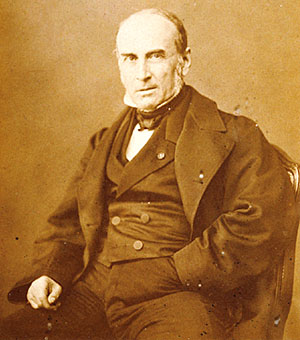
Pierre Guillaume Frédéric le Play was a French engineer, sociologist and economist.
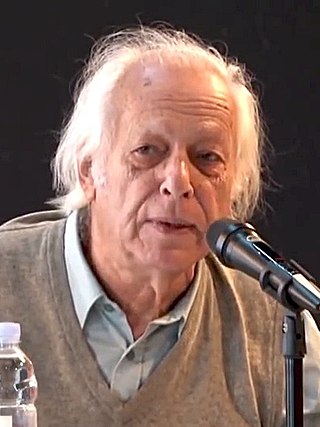
Samir Amin was an Egyptian-French Marxian economist, political scientist and world-systems analyst. He is noted for his introduction of the term Eurocentrism in 1988 and considered a pioneer of Dependency Theory.

Elmar Altvater was professor of political science at the Otto-Suhr-Institut of the Free University of Berlin, before retiring on 30 September 2004. He continued to work at the institute, and published articles and books.

Alain Bauer is a French criminologist who has been a professor of criminology at the Conservatoire national des arts et métiers since 2009. He is also a senior research fellow at the John Jay College of Criminal Justice and the China University of Political Science and Law (Beijing). There were many protests in the scientific community in France against the appointment because he had not received a PhD.
Unions have been compared across countries by growth and decline patterns, by violence levels, and by kinds of political activity.
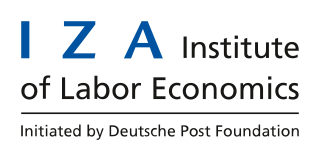
The IZA – Institute of Labor Economics, until 2016 referred to as the Institute for the Study of Labor (IZA), is a private, independent economic research institute and academic network focused on the analysis of global labor markets and headquartered in Bonn, Germany.
Jean Haudry was a French linguist and Indo-Europeanist. Haudry was generally regarded as a distinguished linguist by other scholars, although he was also criticized for his political proximity with the far-right. Haudry's L'Indo-Européen, published in 1979, remains the reference introduction to the Proto-Indo-European language written in French.

Xavier Darcos is a French politician, scholar, civil servant and former Minister of Labour.
Pierre Veltz is a French academic.

Dominique Lecourt was a French philosopher. He is known in the Anglophone world primarily for his work developing a materialist interpretation of the philosophy of science of Gaston Bachelard.

Jean Baubérot, is a French historian and sociologist specializing in sociology of religions. He is the founder of the sociology of secularism.

François Noudelmann is a contemporary French philosopher, university professor and radio producer.
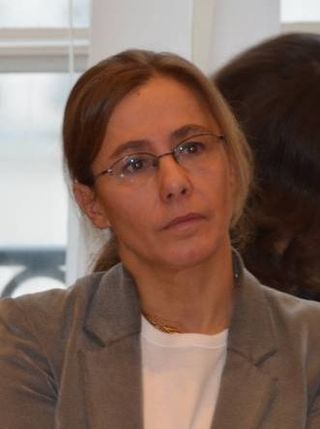
Emmanuelle Tourme-Jouannet is a professor of International law at the Sciences Po School of Law. She teaches and carries out research in International law, International dispute, Human rights and International humanitarian law as well as in History of law and Philosophy of law. Her career as a jurist and a philosopher has begun after having taken courses in law and philosophy respectively at Panthéon-Assas University and the Paris-Sorbonne University.
Shoshana Grossbard is an economist and professor of economics emerita at San Diego State University. She is also a member of the Family Inequality Network, HCEO, University of Chicago and a research fellow at the Institute for the Study of Labor and the CESifo Institute. She is a founder of two organizations related to household economics: a journal, the Review of Economics of the Household founded in 2001 and the Society of Economics of the Household. The Society (SEHO) holds annual meetings since 2017.
Alain Testart was a French social anthropologist, emeritus research director at the Centre National de la Recherche Scientifique (CNRS) in Paris and member of the Laboratory for Social Anthropology at the Collège de France. He specialized in primitives societies and comparative anthropology. His research themes included: slavery, marriage arrangements, funeral practices, gift and exchange, typology of societies, the political, the evolution of the societies, and questions of interpretation in prehistoric archaeology.
The sociologyof quantification is the investigation of quantification as a sociological phenomenon in its own right.
"Necessary in a democratic society" is a test found in Articles 8–11 of the European Convention on Human Rights, which provides that the state may impose restrictions of these rights only if such restrictions are "necessary in a democratic society" and proportional to the legitimate aims enumerated in each article. According to the Council of Europe's handbook on the subject, the phrase is "arguably one of the most important clauses in the entire Convention". Indeed, the Court has itself written that "the concept of a democratic society ... prevails throughout the Convention". The purpose of making such claims justiciable is to ensure that the restriction is actually necessary, rather than enacted for political expediency, which is not allowed. Articles 8–11 of the convention are those that protect right to family life, freedom of religion, freedom of speech, and freedom of association respectively. Along with the other tests which are applied to these articles, the restrictions on Articles 8–11 have been described as "vast limitations", in contrast to American law which recognizes nearly unlimited right to freedom of speech under the First Amendment.
Samantha Besson, born on March 30, 1973, in Beirut, is a law professor specialising in Public International Law and European Law. She holds the chair "The International Law of Institutions" at the Collège de France (Paris) and is a part-time professor at the University of Fribourg (Switzerland).
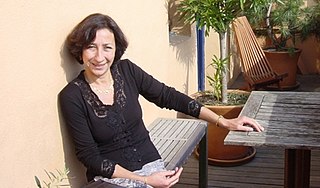
Margaret Rose Maruani Rey was a Tunisian-born French sociologist and director of research at the French National Centre for Scientific Research (CNRS) in Paris. She was the founder and editor-in-chief of the academic journal, Travail, Genre et Sociétés and directed the international and multidisciplinary research network "Marché du travail et Genre" (MAGE–CNRS).